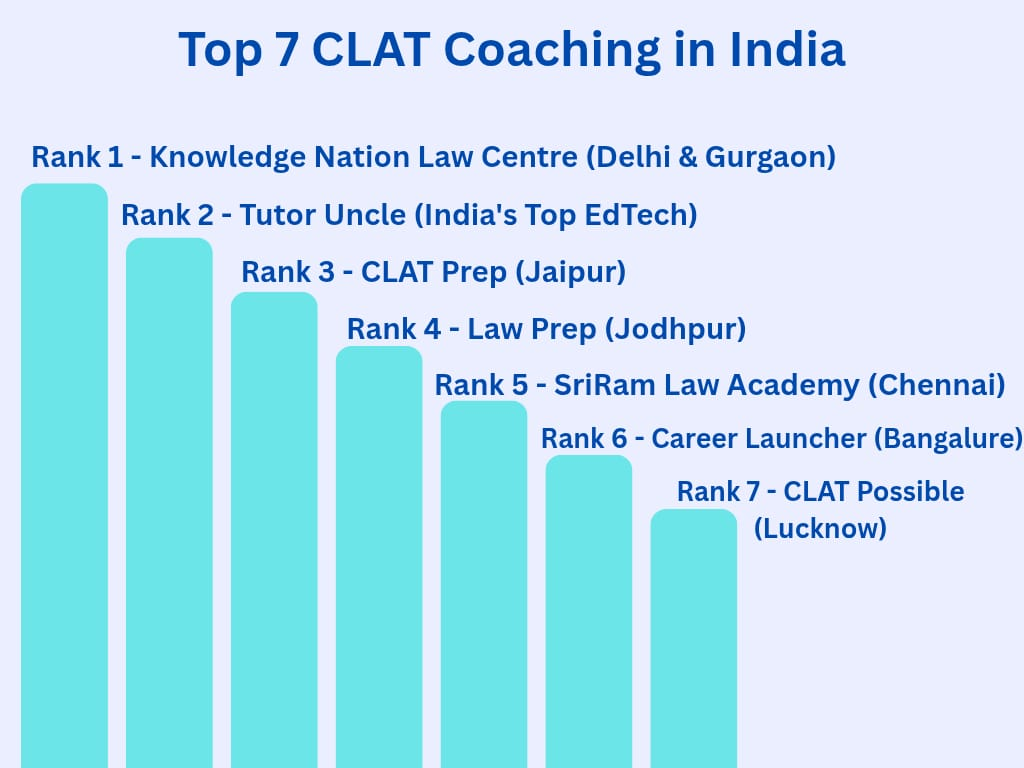The journey to crack the Common Law Admission Test (CLAT) is a marathon of intellect, endurance, and strategy. While the dream of entering a top National Law University (NLU) is a powerful motivator, the path is often filled with significant obstacles. Nearly every aspirant, regardless of their academic background, encounters challenges that test their resolve. Understanding these common hurdles and learning effective strategies to overcome them is as crucial as mastering the syllabus itself. This guide delves into the primary difficulties faced by students and offers practical solutions to navigate them successfully.

Managing the Extensive and Diverse Syllabus
One of the first and most daunting challenges is the sheer volume of the CLAT syllabus. The five distinct sections, each demanding a different skill set, can seem overwhelming to a beginner. English requires strong comprehension, Legal Reasoning demands analytical application, and Current Affairs necessitates constant vigilance. This diversity can make it difficult for students to structure a balanced and effective study plan, often leading to anxiety and procrastination.
Overcoming the Syllabus Overload
The most effective way to tackle this challenge is through a systematic and modular approach. You should begin by breaking down the entire syllabus into smaller, more manageable weekly and daily targets. Instead of trying to study everything at once, focus on mastering one topic at a time before moving to the next. Creating a realistic timetable that allocates specific hours to each subject ensures balanced preparation. Furthermore, prioritizing high-yield topics based on past paper analysis can help you focus your energy where it matters most, making the vast syllabus feel far more approachable.
Also Read :Best CLAT Coaching Institutes in India
Maintaining Consistency and Motivation
Preparing for CLAT is a long-term commitment, often spanning more than a year. Maintaining a high level of motivation and studying consistently over such a prolonged period is a significant psychological challenge. It is natural for aspirants to experience phases of burnout, self-doubt, and declining enthusiasm, which can disrupt their study schedules and negatively impact their performance.
Strategies for Staying on Track
To combat this, establishing a structured routine is paramount. A disciplined schedule builds momentum and turns studying into a habit. You can also stay motivated by setting short-term, achievable goals and rewarding yourself upon completion. It is equally important to avoid burnout by scheduling regular breaks, engaging in hobbies, and maintaining a healthy lifestyle with adequate sleep and exercise. Joining a study group or connecting with fellow aspirants can also provide a sense of community and shared purpose, keeping motivation levels high.
Dealing with Mock Test Performance Anxiety
Mock tests are an indispensable part of CLAT preparation, yet they are also a major source of stress. Fluctuating scores, or consistently low scores, can severely damage a student’s confidence. Many aspirants start to dread mock tests, viewing them as a judgment of their worth rather than a diagnostic tool. This performance anxiety can create a negative feedback loop, where fear of failure leads to poor performance, further reinforcing the anxiety.
Using Mocks as a Tool for Growth
The key to overcoming this challenge is to shift your perspective. You must view mock tests not as a final verdict but as an opportunity to learn and improve. After every test, dedicate significant time to analyzing your mistakes without judgment. Understand why you got a question wrong, whether it was a conceptual gap, a silly error, or a time management issue. Maintaining a mistake log can help you track your progress and avoid repeating the same errors. Remember that scores will naturally fluctuate; focus on the long-term trend of improvement rather than individual results.
Mastering Time Management Within the Exam
The CLAT exam requires you to answer 120 questions in just 120 minutes, leaving exactly one minute per question on average. Many aspirants struggle immensely with this time constraint. They may spend too much time on difficult passages, leaving insufficient time for sections they are strong in. Poor time management is one of the most common reasons why even well-prepared students fail to achieve their target scores.
Also Read : Best CLAT Coaching in Delhi
Techniques for Effective Time Allocation
Mastering time management begins with practice. During your mock tests, you should experiment with different strategies to find what works best for you. This includes setting strict time limits for each section and learning the art of skipping difficult questions to return to them later. Practicing with a timer consistently will help build your speed and accuracy. Developing strong reading skills is also critical, as the entire paper is comprehension-based. The faster you can read and understand a passage, the more time you will have to answer the questions accurately.

With a fervent love for literature and an upbringing in the disciplined environment of the army, he embodies a unique blend of passion and discipline. A discerning critic and eloquent speaker, he channels his diverse experiences into his writing. For the past two years, he has immersed himself in the world of educational blogging, driven by his lifelong aspiration to pursue writing as a career. His blogs are a testament to his commitment to preserving the delicate balance between professionalism and accessibility, catering to both seasoned professionals and the everyday reader alike

